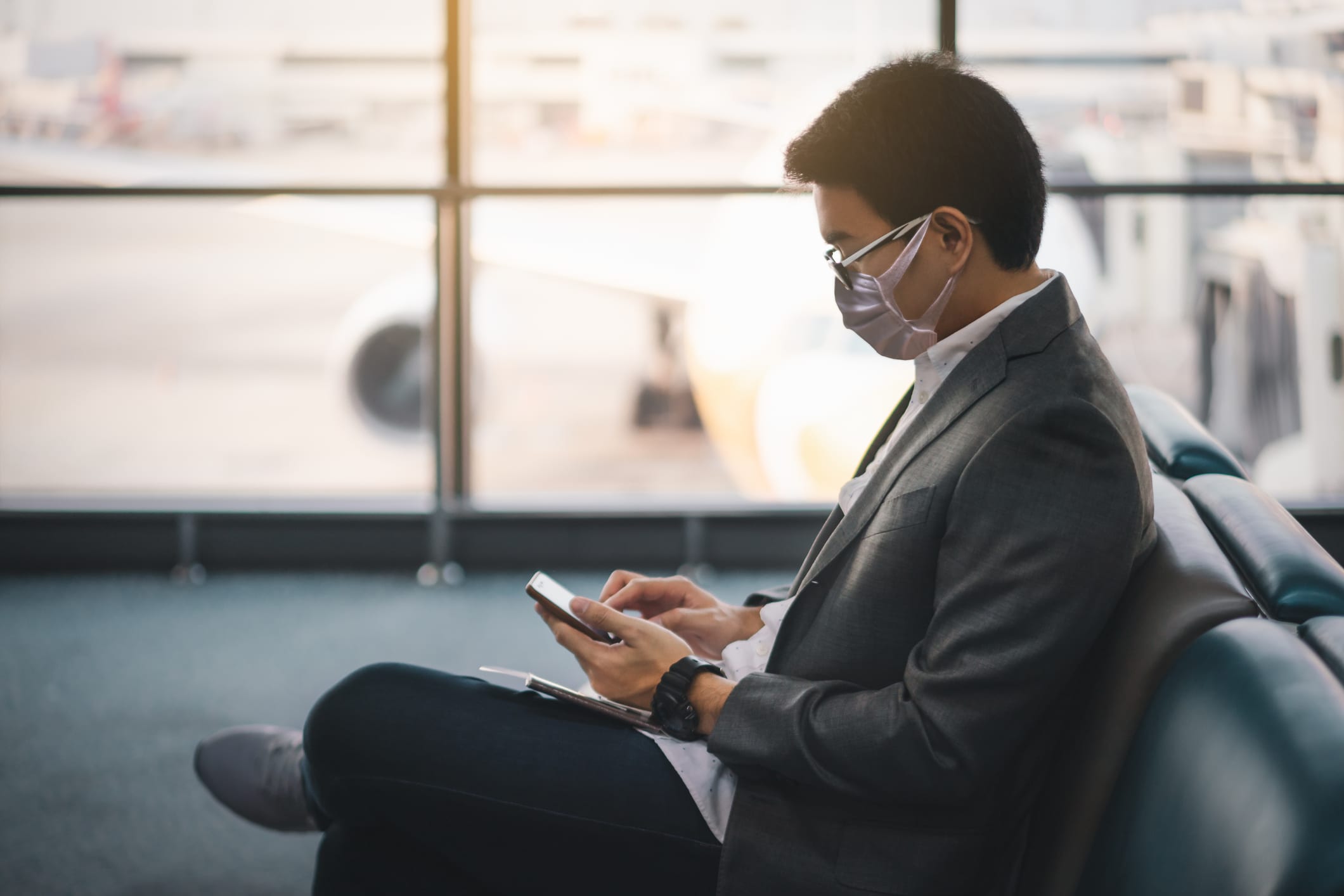If the Covid pandemic has proven any axiom, it’s that an ounce of prevention is worth a pound of cure — and if you can’t prevent or cure, insure.
Travelers are taking that lesson to heart and, as they return to cars, planes and cruise ships, they’re looking to hedge their bets by insuring trips, locking in prices and more — when, where and as easily as they can. And they’re willing to pay for that peace of mind, according to travel app Hopper.
“There’s an enormous appetite for security and stability, and customers are willing to pay for this,” said Hopper founder and CEO Frederic Lalonde.
To help meet that need, Hopper announced Tuesday it’s teaming with Amadeus to offer customers of the Madrid-based global distribution system and travel software giant its fintech insurance and price-freeze solutions via its Hopper Cloud business-to-business initiative.
Hopper describes itself as the largest North American travel app and a “mobile-first travel marketplace.”
More from Personal Finance:
Here’s why you should insure your next trip
App offers skittish travelers 60-day hotel rate freeze
Expanding U.S. reach, travel site begins accepting dogecoin
In return, Hopper users now have access to Amadeus’ worldwide car rental inventory via the Amadeus Travel Platform, with 40 rental companies in more than 3,500 cities in 191 countries. Montreal-based Hopper, with more than 50 million downloads and $1.2 billion in sales the past year from 2 million hotels, 300 airlines and several existing car rental partners, began using Amadeus for flight content late last year.
The expanded partnership is a natural fit, said Lalonde.
“Amadeus has huge reach; they’ve become, to my knowledge, the largest provider of travel technology in the world,” he added, noting the firm “has a network of technology and sales that powers a huge amount of this huge $2.1 trillion [travel category].”
The deal is another step in Hopper’s expansion from travel into fintech, or financial services technology. “When we started thinking of how to offer Hopper Cloud, our financial products, to everybody, there was really one name at the top of that list,” said Lalonde.
The Hopper Cloud products Amadeus is deploying include Cancel for Any Reason, which lets passengers instantly cancel any flight reservation up to 24 hours before departure and get at least 80% of the fare back, and Price Freeze, which allows travelers to hold a price for up to 14 days.
Any travel seller using the Amadeus Travel Platform, such as online travel agencies and airlines, will be able to offer customers the fintech products, for which Hopper underwrites all the risk, once the firms’ integration process is complete. Lalonde says specialization in travel fintech products has let the firm, which has U.S. offices in New York and Cambridge, Massachusetts, not only stand out but thrive.
“We’ve gotten extraordinarily good at pricing risk, of prices changing, of things being disrupted,” he said, noting Hopper doubled its revenue during Covid.
“We’re the only OTA [online travel agency] that I know of, except for one in India focused on trains, that actually grew during the pandemic,” added Lalonde. “When we started seeing how much more robust our own business was, we started thinking ‘Should we offer these financial services to everybody?'”
For Amadeus, the deal is part of an ongoing diversification project.
“We’ve distributed, for many years, traditional travel insurance from the insurance companies everyone knows, and we’ve done that very successfully in different channels: online, offline and with the airlines,” said Peter Altmann, the company’s head of mobility and insurance, noting Amadeus powers 40 air carriers’ website insurance purchase offerings.
We gradually went from a travel company to a financial company.Frederic LalondeCEO of Hopper
But the insurance-type fintech from Hopper is different, Altmann said.
“We believe consumers will buy more of these products than traditional travel insurance, especially the younger generation,” he added, noting that cancel-for-any-reason, as a financial services product, is not bound by global legal strictures as traditional insurance policies are.
In addition, Altmann said, “it brings the app experience, so you not only purchase the product on the app but you do all the follow-up on the app, as well.” So, instead of sending claims forms by registered mail or e-mail, customers can instantly complete a claim via the app.
They’ll likely find willing customers, according to Hopper’s research; the company said 80% of travelers said they would book a flight if they could change or cancel the ticket without penalty. (For its part, Amadeus has found 41% of travelers will book international travel within six weeks of restrictions being lifted.)
Meanwhile, 60% would buy at least one fintech product as part of their travel booking and, according to Hopper, there’s an 87% likelihood they’d buy again. Lalonde said such travelers in the U.S. spend $55 more on average per booking.
“For the same dollar of travel sold, customers spend 15% more” with Hopper Cloud fintech, Lalonde said. Lalonde estimated the total potential market for travel-related financial services is at least $200 billion. “That’s larger than gaming,” he noted. “There’s an incredible opportunity to develop that.”
Hopper — whose fintech development effort, begun in 2018, ended up accounting for half of all revenue just a year later — may be looking at other financial services opportunities such as savings accounts. “We’re extremely interested,” he said.
“We gradually went from a travel company to a financial company,” he said, noting Hopper took all the risk for fintech products on its profit-and-loss statement. As Covid hit, “we had more outstanding liabilities than we had cash,” Lalonde said. “There was a time in 2020 that I was sure we were dead.”
“As bad as Covid was, in hindsight what we learned from that black swan event about customer behavior and the risk models is invaluable,” he added. “It would have taken decades to get equivalent data.”
